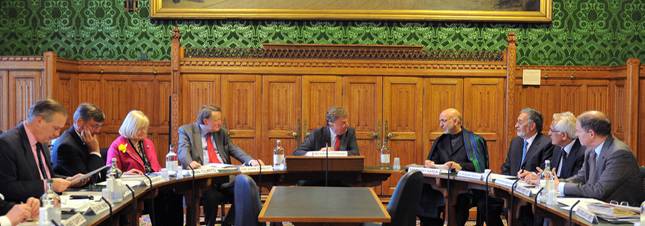
The establishment of Select Committees is routinely cited as one of the most important reforms in the House of Commons' recent history, and one of the few occasions when a reform unequivocally strengthened parliament against the executive. Despite this the research carried out into committee impact and effectiveness has been limited. Committee impact is complex, and may often be indirect, making it difficult to assess. The most obviously measurable factor is the number of committee recommendations which are taken up by government. But applied too simplistically this measure can give misleading results, and committees can also have more subtle forms of influence.
This innovative project, funded by the Nuffield Foundation, was the first large-scale cross-committee analysis of the policy impact of select committees. The project was unusual, in that it was a collaboration between the Constitution Unit and House of Commons Select Committee staff. During the dissolution period and the summer recess of 2010, committee staff worked to gather and code data on committee inquiries and recommendations. The parliament team then conducted interviews and quantitative analysis. The results of the project were published in June 2011 in a Constitution Unit report.
The work on committees was part of a wider programme of research into the policy impact of the British parliament, led by Professor Russell. Find out more about the policy impact of parliament programme.
- Publications
Journal articles
- Assessing the Impact of Parliamentary Oversight Committees: The Select Committees in the British House of Commons in Parliamentary Affairs (October 2013)
Reports
Findings included:
- Committees are highly prolific, and producing increasing numbers of reports. Between 1997 and 2010 select committees probably produced almost 1500 inquiry reports (or 110 a year) and almost 40,000 recommendations and conclusions, of which 19,000 (or 1450 a year) were aimed at central government.
- Committee recommendations call for a wide variety of actions by government. Relatively few (around 20%) relate to flagship policies. Around 40% call for a small policy change or continuation of existing policy, while the remainder call for larger changes.
- Around 40% of recommendations are accepted by government, and a similar proportion go on to be implemented. Calls for small policy change are more likely to be accepted and implemented, but around a third of recommendations calling for significant policy changes succeed.
- The report identifies seven additional types of influence: contribution to wider debate, drawing together evidence, spotlighting issues and changing ministerial priorities, brokering (improving transparency within and between departments), accountability, exposure, and generating fear.
- Select committees are most influential when they are strategic, timely or persistent. They could do more to follow up on previous inquiries, and monitor the progress of their recommendations. Media attention is also a double-edged sword. Public embarrassment is a key form of influence, but committees can sometimes veer towards 'ambulance chasing'.
- Other outputs
Oral evidence
- House of Commons Liaison Committee on the power and effectiveness of Select Committees (23 February 2012)
Written evidence
- House of Commons Liaison Committee on the power and effectiveness of Select Committees (20 February 2012)
Press releases
- "House of Commons select committees influence policy by 'generating fear'", Constitution Unit press release, 29 June 2011
Media
- Today in Parliament feature, 1 July 2011.
- From Hearsay to Hard Fact by Georgina Holmes-Skelton, House Magazine 4 July 2011 number 1390, volume 36
- Select Committees aren't just talking shops - they do make things happen by Meghan Benton, 6 July 2011
- Under review: how well do MPs scrutinise policies? by David Walker, Guardian Professional 7 July 2011
Presentations
- Selective Influence: The Policy Impact of House of Commons Select Committees - slides from Meg Russell and Meghan Benton's presentation at the report launch, 29 June 2011
- Selective Influence: A Staff Perspective - slides from Sarah Petit's presentation at the report launch
- Select Committee Impact and Effectiveness: Early Reflections - slides from Meg Russell's presentation at the interim findings event, 22 July 2010
- Early Reflections on the Drafting of Reports and Recommendations - slides from Sarah Petit and Georgina Holmes-Skelton's presentation
Meg Russell and Meghan Benton also presented some of their findings and conclusions at the 2011 Political Studies Association conference in a paper titled The policy impact of parliamentary oversight committees: visible and less visible factors (London, 21 April 2011).
 Close
Close




